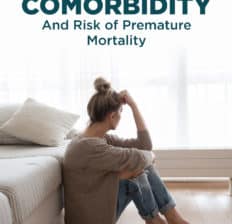This Dr. Axe content is medically reviewed or fact checked to ensure factually accurate information.
With strict editorial sourcing guidelines, we only link to academic research institutions, reputable media sites and, when research is available, medically peer-reviewed studies. Note that the numbers in parentheses (1, 2, etc.) are clickable links to these studies.
The information in our articles is NOT intended to replace a one-on-one relationship with a qualified health care professional and is not intended as medical advice.
This article is based on scientific evidence, written by experts and fact checked by our trained editorial staff. Note that the numbers in parentheses (1, 2, etc.) are clickable links to medically peer-reviewed studies.
Our team includes licensed nutritionists and dietitians, certified health education specialists, as well as certified strength and conditioning specialists, personal trainers and corrective exercise specialists. Our team aims to be not only thorough with its research, but also objective and unbiased.
The information in our articles is NOT intended to replace a one-on-one relationship with a qualified health care professional and is not intended as medical advice.
What’s the Link Between Psychiatric Comorbidity and Risk of Premature Mortality?
March 10, 2022

Psychiatric comorbidity is known to have a huge impact on someone’s overall well-being. It can even increase the risk of early death (mortality), including from suicide.
Comorbidities describes two disorders that occur together in the same person at the same time (also known as co-occurring conditions). It’s common for people to be affected by more than one illness at once, including both physical and mental heath issues.
Recently, researchers have investigated how the combination of noncommunicable diseases — meaning chronic conditions that do not result from an acute infectious— occurring along with psychiatric comorbitities can affects someone’s life span. Noncommunicable diseases include chronic respiratory diseases like COPD, cardiovascular diseases and diabetes, which are extremely common in many developed countries.
Study: Psychiatric Comorbidity and Risk of Premature Mortality
A large 2022 study conducted in Sweden that included data from over 1 million people sought to determine if there’s a link between psychiatric comorbidity, noncommunicable diseases and increased risk of premature mortality. In this study, premature mortality was defined as death before the age of 65 years old.
Researchers followed participants born between 1932 and 1995 who had noncommunicable diseases either with or without psychiatric conditions to determine their risks of premature mortality and suicide. In this longitudinal study, it was observed that there’s increased risk of all-cause death and suicide in individuals with chronic diseases plus psychiatric comorbidities.
Here’s some of the key findings that the study uncovered:
- Within five years of diagnosis of a noncommunicable disease, at least 7% of people with respiratory diseases, cardiovascular diseases or diabetes died from any cause and 0.3% died from suicide.
- Mortality rates ranged between 15% to 21% in people with chronic health plus psychiatric disorders. Risks ranged from 6% to 9% in patients without such comorbidities. This means that risk of death was more than doubled in patients with psychiatric comorbidities compared to those without such comorbidities.
- 25% to 32% of people with these medical conditions had co-occurring lifetime diagnoses of a psychiatric disorder.
- Comorbid psychiatric disorders were associated with higher all-cause mortality when compared to those without these conditions.
- Suicide mortality was also higher among comorbid patients versus those without comorbidity. Those with multiple diseases were found to be over five times as likely to die from suicide during the study.
- Comorbid substance use disorders were associated with a higher mortality rate than depression, but risks of suicide were similar for these two psychiatric comorbidities.
Researchers compared the risk of early death among the participants with comorbidities to their siblings without noncommunicable diseases and psychiatric disorders. This was done to account for genetic and environmental risk factors that are shared between siblings.
Comparisons showed that comorbidity with any psychiatric disorder was associated with substantially increased mortality rates.
What It Means
Experts believe that if people with noncommunicable diseases and psychiatric comorbidities were assessed and treated better, it could potentially save millions of lives each year. When someone is checked in to the hospital with a chronic disease or diagnosed by a doctor, ideally that person should be screened for depression, substance abuse and other mental health problems at the same time.
It’s thought that by treating mental health issues among those with chronic diseases, people would better adhere to their treatment plans, such as medication use and lifestyle changes, and lower their risk for complications and early death.
What are types of psychiatric comorbidities? How do they contribute to death or disease?
The most frequent comorbid psychiatric disorders are depression, generalized anxiety disorder and substance abuse disorders. Depression is thought to be especially common among people with other chronic diseases or mental health problems.
Other comorbid psychiatric disorders can include personality disorders, eating disorders, PTSD and obsessive compulsive disorder (OCD).
Experts believe there are several possible ways in which psychiatric comorbidity might increase mortality risk:
- Mental health problems increase the likelihood of someone smoking, eating a poor diet, using drugs and being sedentary (lacking enough exercise).
- Substance use disorders are linked with unhealthy lifestyles and can lead people to put off getting care for health problems. Once someone is diagnosed with a chronic disease, that person is more likely to get poor care or not follow the doctor’s recommendations if that person has a substance abuse problem.
- Depression is known to increase inflammatory biomarkers, including C-reactive protein, which could further contribute to poor physical health.
- Taking medications for mental health issues, such as of certain antidepressants and other psychotropic drugs, can cause metabolic side effects that may increase the risk for type 2 diabetes, obesity and other problems.
- The psychological effects of living with a chronic condition is also associated with low moods, which increases risks of depression, drug use and poor mental health.
- Suicide is thought to be more common among people with more than one health condition because poor health can cause feelings of hopelessness, cognitive distortions, negative thinking and impulsivity.
Ways to Prevent/Manage Noncommunicable Diseases
It’s estimated that noncommunicable diseases account for an estimated 40 million deaths each year worldwide. To help manage and prevent these disease, experts recommend these lifestyle habits:
- Maintain a healthy weight and body mass index
- Avoid tobacco and drug use
- Limit alcohol consumption
- Regularly get enough exercise
- Eat a healthy, Mediterranean-type diet that’s low in sugar, refined grains, unhealthy fats and ultra-processed foods
- Get enough sleep
- Manage stress to avoid complications such as increased inflammation
- If needed, speak with a therapist for help managing any mental health issues
Conclusion
- Comorbid psychiatric disorders have been identified as potential risk markers for premature mortality in adults with noncommunicable diseases (heart disease, respiratory diseases and diabetes).
- What are the most common comorbid psychological disorders? Depression, substance abuse and anxiety disorders commonly affect people with other health issues.
- A large 2022 study found that people with multiple physical/mental health issues had double the risk of early death and five times the risk of committing suicide.



